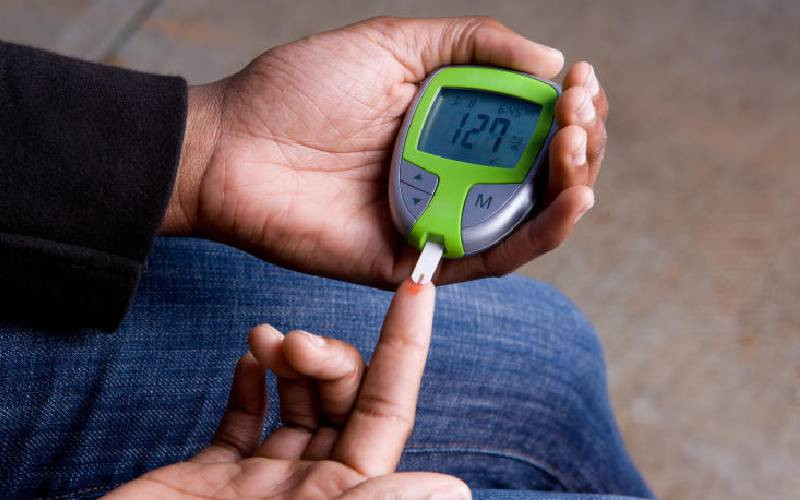
About one in 20 new type, 1 and type 2 diabetes cases could be linked to a previous or an ongoing Covid infection, according to a new study.
Overall, people who had tested positive for Covid-19 were 17 per cent more likely to develop diabetes within 12 months of a coronavirus infection.
Research findings published in the JAMA Network (Journal of the American Medical Association) last Tuesday add to emerging evidence that the pandemic may contribute to the rapid rise in people with diabetes.
It indicated an increased risk of developing diabetes among individuals who have contracted Covid-19 and an even higher risk for people who have experienced severe Covid.
In the general population, men were found to have a 22 per cent higher risk of developing diabetes after a Covid-19 infection. The scholars hypothesised this was a result of sex-specific immune responses to the infection. Women's risk was not significant unless they had a more severe infection.
Previous research had already linked higher diabetes incidence to Covid-19 infection and hypothesised that the Covid-19 virus damages insulin-producing cells in the pancreas.
But the researchers pointed out limitations to the survey, indicating the ample group was relatively small or done on specific groups of individuals, such as military veterans, who may not represent the overall population.
This new research delved deeper. Led by Prof Naveed Janjua and his colleagues at the University of British Columbia, Canada, they examined records from 629,935 random people who took a Covid test and discovered those who tested positive were 17 per cent more likely to get a new diagnosis of type 1 or type 2 diabetes within a year of infection.
- How I beat diabetes without drugs
- Understanding possibility of remission in diabetes
- Kenyans urged to undergo regular diabetes screening
- Kenya targets to produce 6 million pneumonia vaccines every month
Keep Reading
"Given the large number of people infected with Covid-19, these excess diabetes cases could translate into a very large population-level burden of diabetes which could strain already stretched healthcare systems," Janjuar told the Guardian.
Noteworthy is that diabetes type two, more common in adults, was the most common diagnosis in the study. However, the research suggested diabetes type one was more likely to develop in children.
The study recommended further research to confirm whether the virus is the direct cause of these increased cases of diabetes and confirm the underlying mechanisms or reasons why the virus causes diabetes.
"Some studies have suggested that Covid-19 could infect cells that produce insulin in the pancreas, leading to alteration of their function and insulin production, while other studies are not conclusive on this theory," said Janjua.
However, lifestyle factors, including taking excess alcohol, smoking, and being overweight or obese, continue to be the main driver for diabetes, with over two million diagnosed cases in the country.
 The Standard Group Plc is a multi-media organization with investments in media
platforms spanning newspaper print
operations, television, radio broadcasting, digital and online services. The
Standard Group is recognized as a
leading multi-media house in Kenya with a key influence in matters of national
and international interest.
The Standard Group Plc is a multi-media organization with investments in media
platforms spanning newspaper print
operations, television, radio broadcasting, digital and online services. The
Standard Group is recognized as a
leading multi-media house in Kenya with a key influence in matters of national
and international interest.











